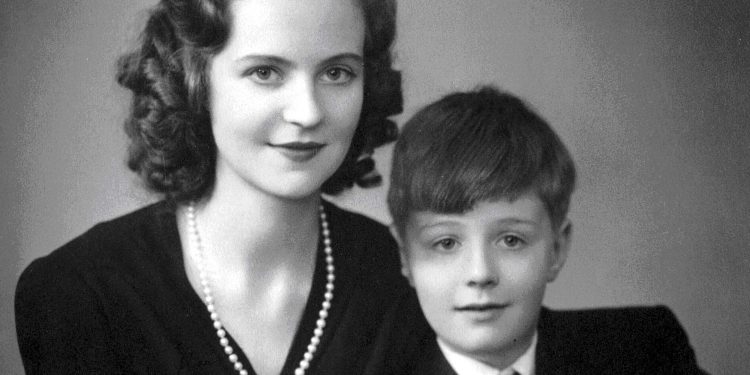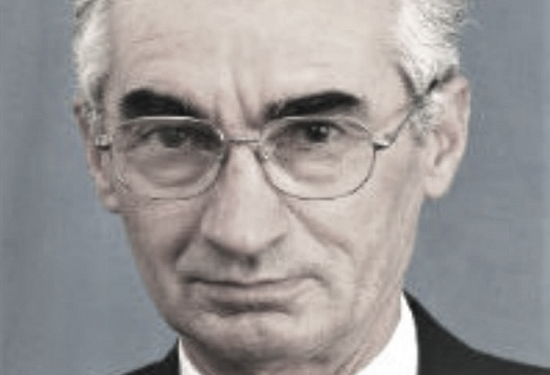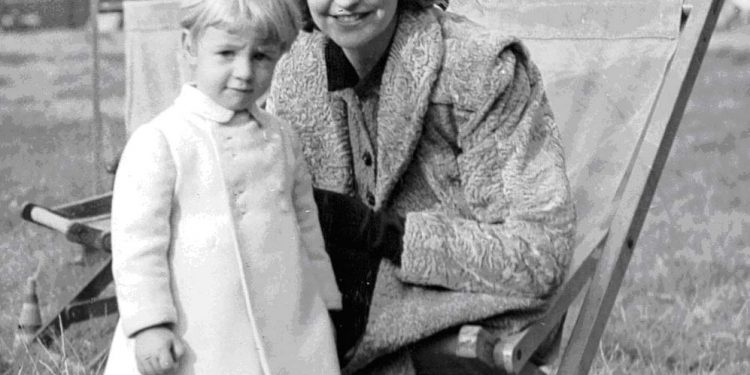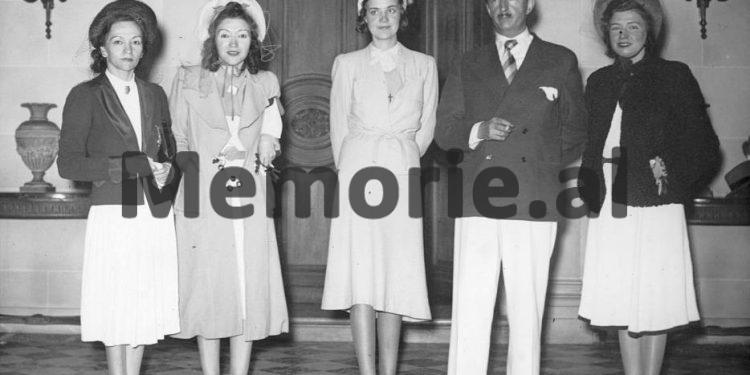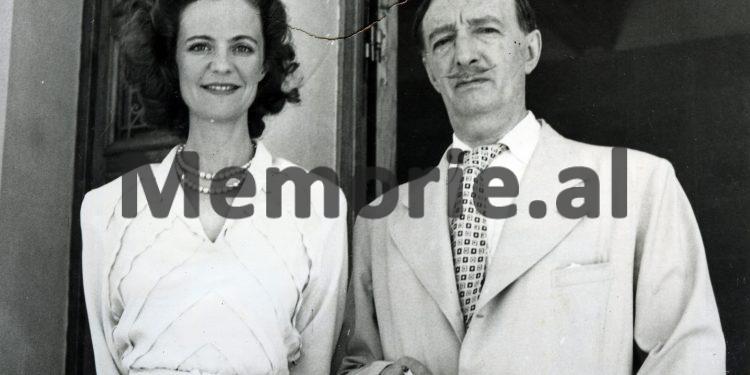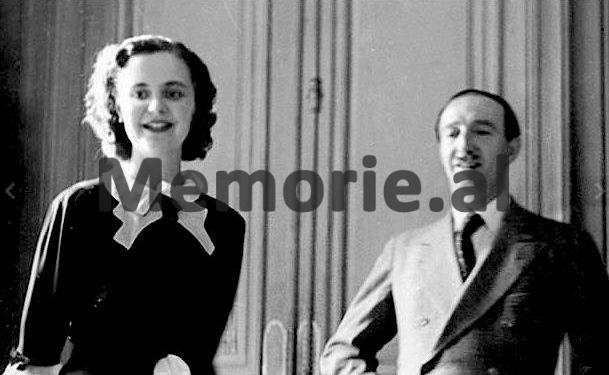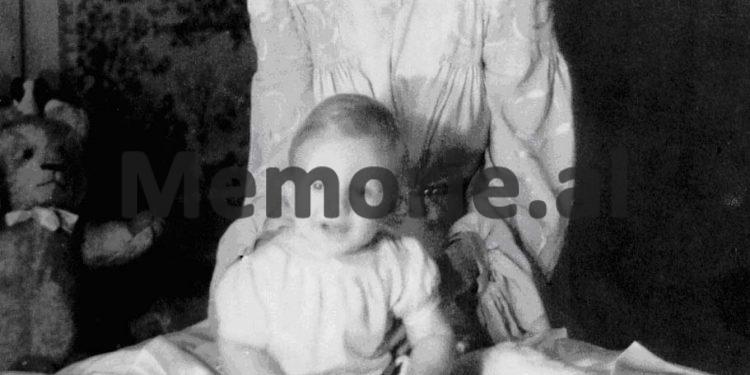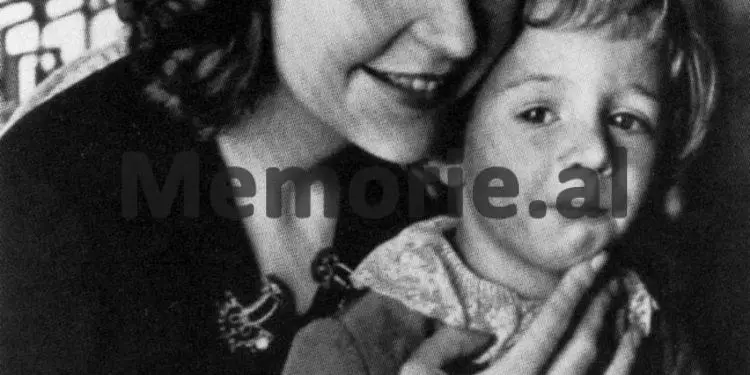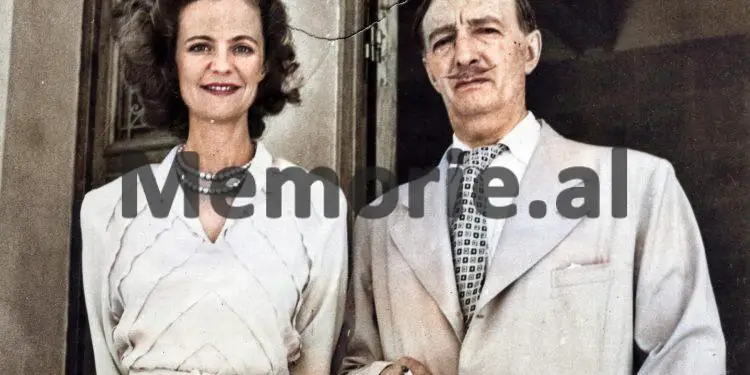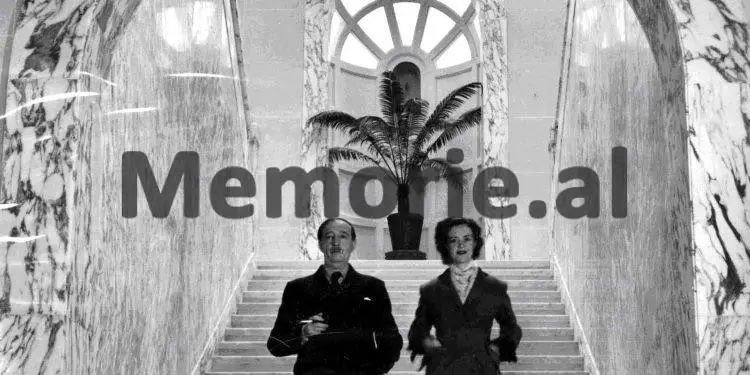By Eugene Merlika
– BEFORE THE QUEEN’S KIVUR –
(If only he had reigned… )
Memorie.al / Albanians have the opportunity to think a little longer about their past and, in some way, to come to terms with it. This occasion is given by a bier carrying the lifeless body of an 87-year-old lady, born Geraldina Aponi in Budapest in the second year of the First World War. That girl, who came from an ancient Magyar noble family, at the age of twenty-three was crowned as the wife of the King of the Albanians, Ahmet Zogu I, and, consequently, as the Queen of Albania. He stayed on the throne of Europe’s newest Kingdom for only one year, after Mussolini’s delusion to “revive” the ancient Roman Empire in modern times, brought the Italian armies to Albania. King Zog together with the pregnant Queen, who two days ago had given the adopted country its heir Prince, left the throne and Albania.
That day marked the beginning of the great tragedy that Albanians would experience on their backs for more than half a century. That day marked for the young Queen the beginning of the long odyssey of exile, this ancient wound that has often accompanied the defeated. Albania and its Royal Family separated to walk in opposite directions, but both had a great sorrow in their souls that accompanied them on their long journeys. Albania, in which every passing day was envious of what was passing, was moving away from the path of light, freedom, and progress.
Her king and family would wander around the world, condemned without a homeland and with his fate languishing in his heart.
Standing in silence, even ideally in front of that qivuri, to honor the memory of the late Queen, a long chain of reasonings and conjectures occupy my mind. My imagination takes me far away, to April 7, 1939, a date and an event that marked a strong turning point in the life of Albanians and their country. If that turn had not been completed, if Albania had continued to walk in the direction it had taken… how would it be now?
Bearing in mind the concept that history is not written with ifs and ifs, let us submit to a strain of imagination and historical logic on events that did not happen, but potentially possible, if King Zog’s Albania continued its normal life without the trauma of April 7.
Albania of that time was a country with many problems but also with many perspectives. Politically it was a Kingdom ruled by a political class, for the most part, formed in the Turkish Empire. As such it reflected all possible limitations, but directed by a person at the height of the task, did not erect walls in defense of its identity and was open to modernization and liberalization of ideas.
As a consequence of the severity of the political struggle of the twenties, a good part of the political class of that time lived in exile, in different countries, where they had followed the leftist failure of the Government of Noli. King Zog had announced an amnesty, which allowed enough exiles to return. Over time, all that contingent of political people would be in their country, at the service of a normal dialectic, which would help in the complete democratization of the country’s life.
The party system would function normally, reflecting the different currents of political thought, but it did not present the risk of extremist degeneration, as the institution of the kingdom guaranteed balance and fascist and communist inclinations did not find a place to thrive. For the very spiritual formation of Albanians, strongly linked to certain concepts such as homeland, faith, family, respect for property, religious belief and authority, be it tribal or state, communist ideas would remain the property of a few young people, whose influence would be negligible in Albanian society.
This political framework would make possible the evolution of the country towards Western models of democracy and at the same time would guarantee the continuous renewal of the system and its ruling class. This pre-supposed a normal functioning of the State institutions, which, passing from the dampness of the first years of Independence and the First World War, had made a great qualitative leap in the last years of the Kingdom. The structure of the State was built and operated, certainly not in a perfect form, but in relation to the country’s stage of development, it was stable and efficient.
In time, it would undergo the appropriate changes in accordance with the requirements of the time, it would be renewed with new cadres trained in Western universities, which would guarantee the continuous modernization, quality and stability of an administrative apparatus, which would not It was a subordinate instrument of politics but a permanent servant of society, of the State, of the Nation.
Not only the connection with the motherland, but also the material incentives that the State of that time made available to graduates abroad made the vast majority of them return and serve in the homeland, thus increasing the number of intellectuals, so necessary in a country who had serious problems of illiteracy.
In this way, the two thousand years would find Albania a politically normal and authoritative State, with professionally capable officials, rewarded to such an extent that they would not envy their colleagues in developed countries, honest and dedicated to duty, far away similar models of this country today.
This entire state superstructure, which in its entirety would include not only the public administration but also the institutions of justice, order, education, defense, health, relations with the world, which in the time of the Kingdom had created the genesis of her, in Albania without revolution and overthrow by force, she would continue to progress and improve on the principles of merit and quality. It would be an expression of an open society, in competition with other neighboring or more distant societies; it would take and make its own the experience of others, without being conditioned by delusions of “greatness” or humility complex.
This society would also have its own economic base, the foundation on which the perspective of development would be built. Albania in the first decades of the twentieth century was an economically backward country. The Turkish Empire in five centuries of rule did not make productive investments of an industrial nature in this country, but stimulated trade without restrictions. With the few capitals gained from this activity, small workshops began to be born. There was a good development in the society of that time and craftsmanship. The kingdom gave a big boost to the construction of the first factories of building materials or light and food industry.
The economic strategy of the Governments of the Kingdom aimed at the most reasonable use of the country’s potential assets, through concessions to foreign capital and the stimulation of domestic capital through laws that guaranteed private property and facilitated economic activity. In terms of land ownership, which in a significant part was in the hands of a few Beyler families, the project of an agrarian reform was drawn up that would give the landless farmers the opportunity to have their own property.
Qualified foreign advisers, called to give their opinion on the different routes and priorities of development opportunities, brought their projects before the Government and the King. Long-term loans from foreign countries, mainly Italy, and the strength of the currency guaranteed these projects financially.
The best ensured public order, political stability and favorable legal framework for foreign investments would have absorbed capital that would turn Albania into a large construction site where growth rates would reach double digits. Contemporary infrastructures would have been built, cities with well-studied and respected regulatory plans, tourist centers that would use the outstanding natural beauties, whether alpine or coastal, that would bring to Albania hundreds of thousands and maybe millions of foreign tourists every year. .
This all-round development of the economy would require a mass of qualified people, coming out of the Albanian youth prepared in the schools of different profiles in Albania and abroad. The pace of development was fully possible thanks to the general conditions of Albania as a country with a rich subsoil, with a harmonious natural relief that promised a parallel development of agriculture and livestock, with a Mediterranean climate that came to its aid. them and made possible the presence of a diverse and productive orchard, with centuries-old and endless forests, with many rivers that were natural sources of energy, etc.
All these gifts of nature, administered by a democratic, free and open social system, in which man as a child would be educated with respect for the law, property and honest work, would make the Albania of the years two thousand a normal developed country, a Switzerland of the Balkans, as dreamed by those who tried to lay the foundations.
Albanians today would be a people that would face the normal problems of an advanced society, like the developed peoples of the continent. They would not have had any reason to take the roads of Europe and the world to become servants, traffickers and prostitutes, they would preserve the pride and nobility of their race in their country, which would provide each one, as after skills, a secure future…!
In their free land, the cult of an autochthonous culture would flourish in confrontation with that of other peoples, a culture of a free society, without restrictions, dogmas, ideology and prejudices, a culture that would respect and lead more beyond the best traditions of the past of this people.
In this whole framework, Her Queen Geraldine would have given her help, with her culture, with the advanced Western mentality, with the liberal spirit of her concepts for society and for the State.
The body of the Queen Mother will be laid to rest on Albanian soil, this is her wish and this makes us immensely happy. She will be escorted to her final earthly abode with due honors. She deserves those honors, because in a difficult life of exile she wandered like a leaf in a storm, having in her heart the fate of her husband’s country, which became her country and for which she said: “My life has been Albania.”
But I think that those honors belong more to what she would have done for Albania if fate and historical events had left her on the throne.
Today, Albania officially buries the only former Queen of her State. It is an encouraging fact, not thought of until ten years ago, a proof that we have begun to understand what we should do and which way we should go. We hope it is not the only step in the right direction. Memorie.al
October 2002




